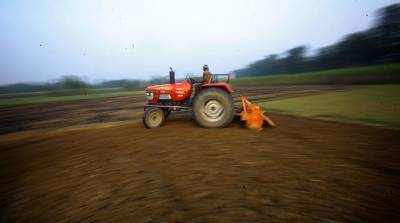NEW DELHI, 18 October 2021: It remains imperative for India to rein in its greenhouse gases (GHGs) emissions considering that the country is believed to be the third largest emitter, of which 14 percent comes from agriculture and allied activities.
It is imperative to cut down on emissions drastically in this decade; else the country faces the imminent danger of major calamities becoming more frequent. In order to reduce GHG emissions, PHD Chamber of Commerce and Industry (PHDCCI), has put forth some critical and pertinent steps that are required to be suitably implemented at the grassroots level.
Innovation is the key
Innovative techniques like The Zero Budget Natural Farming (ZBNF), which was conceptualized in Andhra Pradesh in 2015, can be a potential solution to make Indian agriculture less GHG emitting because it is a low-input, climate-resilient farming that empowers farmers to use low-cost locally sourced inputs, ultimately reducing the usage of chemical, fertilizers and pesticides.
An increased use of machines and technology, improved on farm storage and processing infrastructure to reduce waste, and use of IT and AI for weather forecasting, pest infestation, among others, can help reduce use of chemicals and water.
Incentives and subsidies
Incentivizing the farmers to practice crop rotation and encourage them to shift towards less water-intensive crops, like the millets, maize also pushing subsidies to farmers for the same.
On the policy front, subsidies on electricity, and fertilisers should be reviewed periodically to discourage farmers from indiscriminate use of chemicals and drawing of ground water.
Introducing diversification
Incentivising farmers to undertake diversification towards cultivation of medicinal and aromatic plants and fruit tree crops on field boundaries.
Promoting partnerships and research
Robust partnerships with stakeholders, including agriculture department, Krishi Vigyan Kendras, Agriculture Universities, Research Institutions to scale up and adopt sustainable agri production in the country. Research is also urgently needed towards enhancing yield per animal to increase productivity without much emphasis on increasing the number of livestock.
Promulgating the practice of precision farming and fertigation with use of water-soluble biofertilizers and biopesticides can cut down the cost of cultivation and lower GHG footprint of farming practices.
Spreading the right knowledge
Educating and organizing awareness campaigns for farmers to enhance their skills and knowledge about sustainable agri practices.
This includes intensifying the extension workers engagement with the farming community to spread awareness about the commercial benefits from farm waste and connecting them with such agencies. There is also a need for the development of water and salinity resilient crops.























